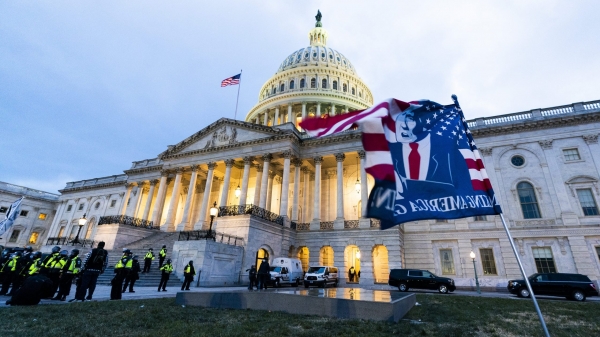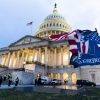By Bill Britt
Alabama Political Reporter
MONTGOMERY—Since revelations about Craftmaster’s bankruptcy first came to light in 2006, its owners have tried to paint it as a non-event. No one characterized the bankruptcy, “nothing to see here,” more than company co-owner and current Republican Speaker of the Alabama House, Mike Hubbard.
Hubbard has gone so far as to accused his political rivals of using the bankruptcy “bogus allegations” as part of a smear campaign against him.
Hubbard, who is under investigation by a Special Grand Jury, has for years deflected rumors surrounding his many business enterprises as nothing more than attacks by his liberal, political enemies. But recently a pattern and practice of suspect business dealings have come to light among conservatives. What was once whispered by GOP faithfuls is being openly discussed on conservative radio, in print and Internet news sites.
But were reports of Craftmaster’s business activities a mere smear campaign as Hubbard has claimed, or is it a part of a larger pattern and practice of Hubbard’s empire building? At least, in part, it is known that some of the Grand Jury investigation has to do with how money from campaigns controlled but then-ALGOP Chairman Mike Hubbard made its way into Hubbard-owned businesses. Should this not raise questions about other Hubbard businesses that profited from his political enterprises?
This has given rise to the questions, who is behind Craftmaster printing, how did it fall into bankruptcy and who and how did Hubbard bail it out of its troubles?
In 2000, a group of investors – led by Hubbard, Thomas B. “Barry” Whatley, Doug Taylor (Whatley’s brother-in-law), and Pat Dye, the former Auburn coach – took a chance on a potentially lucrative venture in purchasing Craftmaster and its debt from its owners for $1. [Opelika-Auburn News, 4/24/05]
Craftmaster Printers Inc. had been locally owned by the George Murphy family in Opelika since 1968. The company flourished for years, in the late 1990s the family took on a major expansion. They moved from Opelika to a new, state-of-the-art facility in Auburn and acquired some of the best printing equipment money could buy. [Source: Opelika-Auburn News, 4/24/05]
As the expansion came to an end and the company moved into its new plant at 687 North Dean Road, Craftmaster was some $5 million in debt and its Dunn and Bradstreet financial ratings had plummeted. [Source: Based on bankruptcy filings, Dunn&Bradstreet reports]
As the Murphy’s faced a dire decision, Hubbard and his partners stepped in to give the family a way out of what could have spelled ruin and perhaps make a profit in the doing.
The first order of business for Hubbard and company was to structured the company ownership in a way that helped protect assets and limit any personal liability. According to Secretary of State records, the group created Craftmaster Holdings Inc. All shares in Craftmaster Printers Inc. were transferred to Craftmaster Holdings. Hubbard was listed in Alabama Secretary of State records as President of Craftmaster Holdings at the time. [Source: Alabama Secretary of State Business Entity Annual Reports for years beginning in 2000, 2001, 2002, 2003, 2004, 2005]
It has been widely speculated that because of the close connections, Hubbard, Whatley and Dye had with Auburn University they had inside information that the university would stop running its own print shop, and that Craftmaster would get the bulk of the school’s lucrative printing business.
The company’s website in 2005 touted its, “impressive 65,000 sq. ft. facility from which Craftmaster serves its customers,” and its, “Areas of expertise include sports publications, instruction manuals, magazines, statement stuffers, posters, pocket folders and college promotional and recruiting materials,” which was based in large part on AU business.
Through the Hubbard-controlled Auburn Network Inc. which was contracted with the university to handle all marketing, merchandising and advertising for Auburn sports, cash began to flow into Craftmaster.
Not only did Hubbard and company use their connection at Auburn but also Hubbard’s standing in the Republican party of Alabama and state government seemed to give the failing printing operation a boost.
From 2002 until the companies bankruptcy, Hubbard used his considerable influence to bring in large amounts of cash from the ALGOP, PACs and government entities.
During that period, the Alabama Republican Party and various PACs – including Hubbard’s own Network PAC – paid at least $300,000 to Hubbard business interests, primarily Craftmaster Printers Inc. and Auburn Network Inc.
In the 2002 election cycle, Craftmaster Printers was the largest single recipient of payments made by the Alabama Republican Party. The party paid Craftmaster $291,700 for purposes identified as advertising, administrative, slate mail and absentee ballots. [Page 1, page 2]
It was not possible to determine whether or not the $291,700 was a fair price for services rendered – but the large infusion of cash from the Alabama GOP would surely have helped the ailing business fend off bankruptcy a little while longer.
During the years 2002 through 2004, Hubbard cycled more than $100,000 in donations to NETPAC back into his own businesses. NETPAC was created by Hubbard and his wife, Susan Sorrells Hubbard. It appears that at the time NETPAC was the main vehicle for raising money for Bob Riley’s 2002 campaign. According to the Mike Hubbard bio information, “Dr. Susan Hubbard, is a Professor and Associate Dean in Auburn University’s College of Human Sciences.”
NETPAC reported at least $93,300 in expenditures to Craftmaster Printers since 2001, reportedly for printing and advertising purposes. NETPAC paid another $10,000 to Hubbard’s Auburn Network Inc., reportedly for advertising.
Despite Craftmaster’s continued slide into bankruptcy, money was still flowing in from GOP-related PACs and the ALGOP.
One of the more interesting PACs to do business with Craftmaster when it was in most disparate straights was, The Alabamians for Lower Taxes, LOWTAX PAC.
The LOWTAX PAC was created by lobbyist and Alabama Trucking Association President J. Frank Filgo.
Most of the money contributed to LOWTAX PAC came from TRUK PAC and ALA-TON PAC, both of which were run by Filgo. A smaller contribution to LOWTAX PAC came from the corporate accounts of MSJ Trucking Inc., a trucking company incorporated by Hubbard’s wife Susan and run by Hubbard’s father-in-law. The Alabama Secretary of State register shows that Susan S. Hubbard was an original incorporator of the company, along with other family members.
LOWTAX PAC reported receiving a total of $226,000 in political contributions in its November 2004 report. LOWTAX PAC paid $181,000 – or 80 percent of the money it raised – to Auburn Network Inc. and to Studio 197, a division of Auburn Network. LOWTAX reported that the payments were for advertising purposes. LOWTAX PAC also made a small contribution Hubbard’s NETPAC.
Curiously, The Alabamians for Lower Taxes (LOWTAX PAC) was formed in October 2004 only operated for three months before Filgo terminated the PAC in January 2005.
Even with Hubbard’s ability to parlay his connections at the university and in Montgomery into paying customers, Craftmaster was a failing enterprise.
This is evident by the company’s annual Income Statements. In 2002, the company reported net losses of $368,412, according to a Craftmaster annual Income Statement for that year. The following year, Craftmaster lost $882, 645. Only after an “extraordinary” adjustment in the numbers allowed the company to show a profit for the year. [Source: See Annual Statement for 2003]
All research has failed to uncover the unnamed creditor who forgave a $1.3 million debt, which enabled Craftmaster to report being $440,000 in the black for 2003. [Source: See Annual Statement for 2003]
Like the previous owners, Craftmaster was being devoured by debt in late 2004, so, with angry creditors and mounting pressure, Hubbard and company looked for a way to dodge the debt bullet.
The beating heart of the Craftmaster operation was, a top-of-the-line Speedmaster Six Color Printing Press, along with a Heidelberg Spectral Photometer. In 2004 Hubbard and company defaulted on a $2.6 million loan from Heidelberg Print Finance.
On page 108 of Hubbard’s book Storming the State House Hubbard tries to sweep the default on the loans and the impending bankruptcy under the rug, by blaming those who had control of the day-to-day operations. A pattern throughout Hubbard’s life and career, when anything goes wrong he has no knowledge, and it is his people not him who have failed.
Those who have worked closely with Hubbard over the years all agree he is a micro-manager who denies, shift blame and bristle at any attempt to hold him accountable for failure.
But failure was sitting at Hubbard’s door when Heidelberg Print sued for breach of contract in Circuit Court in Lee County on November 4, 2004. Heidelberg demanded full payment of the $1.7 million loan balance and sought immediate return of the press and other equipment. [Source: Craftmaster Defaults on Heidelberg Press document]
At the same time, Craftmaster faced default on $4.8 million in principal, interest, late charges and attorneys’ fees owed to AuburnBank for a mortgage loan for the new building and land Craftmaster purchased in Auburn around 2000. [Campaign report]
Continuing a business pattern that has made Hubbard wealthy while others around him collapsed, Craftmaster purchased advertising from Hubbard’s Auburn Network and made payments to other Hubbard-owned business, according to a General Ledger for Dec. 1 – Dec. 31, 2004, while missing loan payments to its biggest lenders.
Part Two: A questionable bankruptcy and reorganization.




















































